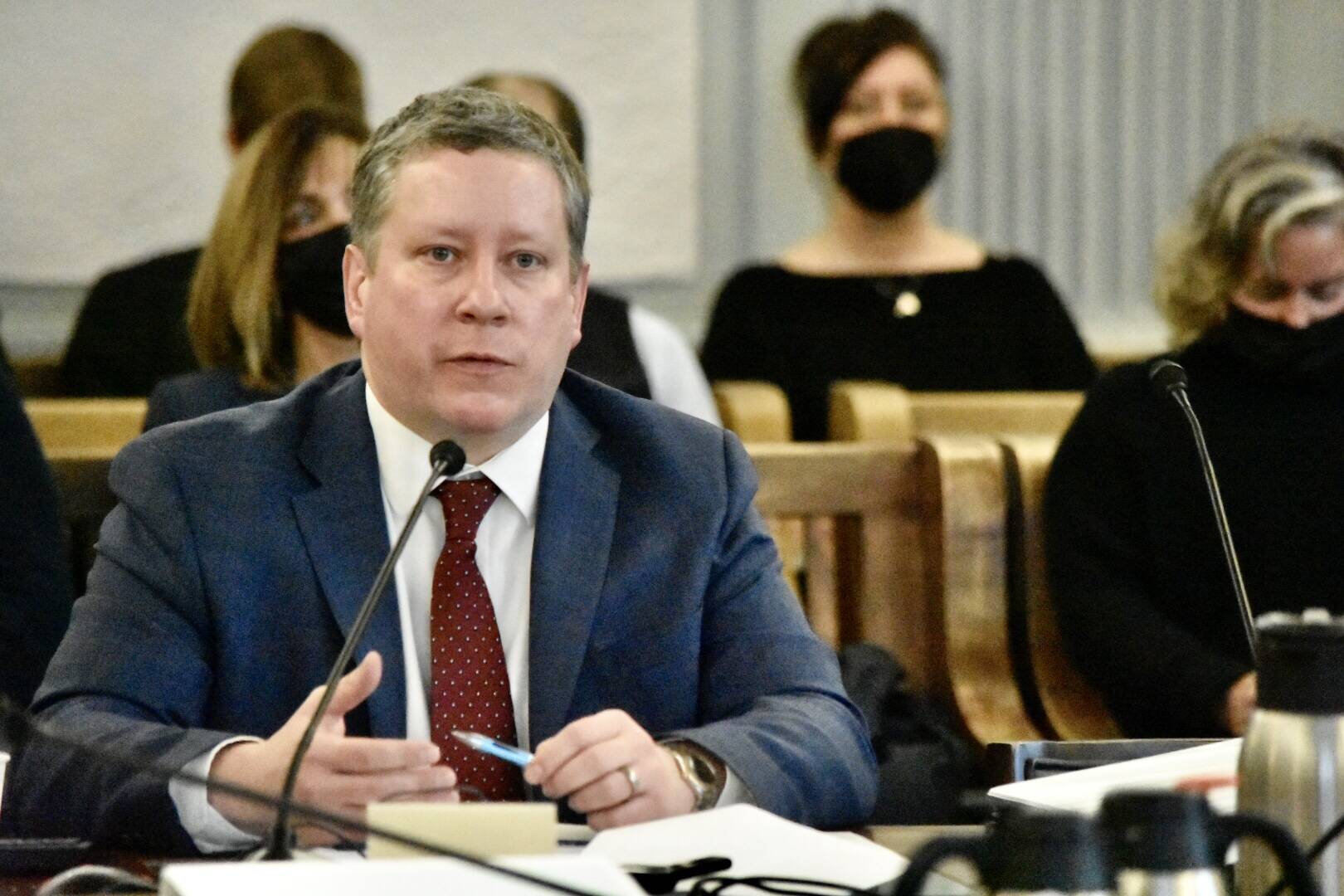The bicameral and bipartisan Legislative Budget and Audit Committee met Monday to question members of the Board of Trustees of the Alaska Permanent Fund Corporation over the firing of Alaska Permanent Fund Corp. CEO Angela Rodell in December.
Rodell has claimed her firing was politically motivated, specifically for her recommendations against exceeding the state’s annual draw from the Permanent Fund without a long-term fiscal plan.
Chair of the LBA Committee, Sen. Natasha von Imhof, R-Anchorage, said the meeting was not an investigation but rather a fact-finding mission. She asked that members reserve judgment.
In his testimony, APFC Board of Trustees Chair Craig Richards noted that Rodell is considering litigation and that certain questions surrounding the exact details of the firing — which was decided in a confidential executive session — could not be discussed with the committee.
Richards said at the meeting there had been tension between Rodell and the board, and that the relationship between Rodell and investment staff was “getting worse and not better.” Rodell’s firing was not related to her opinion on the percent of market value draw, Richards said, but repeatedly cited her relationship with APFC staff and the board.
Richards referred to Rodell’s self-evaluation reports wherein she noted a need to better communicate with staff.
“One of the biggest challenges I have faced has been to address the lack of collaboration and find ways to improve and recognize the contribution of each employee,” Rodell wrote in her 2021 self-evaluation. “I need to continue to work on outwardly showing empathy and active listening.”
Committee members questioned Richards on the politicization of the APFC board which is supposed to be independent, citing gubernatorial appointees to the board, including Dunleavy’s Commissioner of Revenue Lucinda Mahoney.
But Richards defended the board’s decision, saying Mahoney was not the first commissioner to be appointed to the board and said there were clear personnel issues that board members acted on. In response to questions focusing on why Rodell was fired despite the Permanent Fund’s record performance in the past few years, Richards noted the CEO doesn’t control investments.
“At the end of the day, it’s important to understand the executive director did not handle investments,” Richards said. “Ultimately, it is the CIO that is responsible.”
At several points during the meeting, Richards noted a strained relationship between investment staff at APFC and Rodell.
[Juneau lawmakers’ prefiled bills seek state services stability]
In a meeting with reporters Monday, Gov. Mike Dunleavy dismissed claims Rodell’s firing was politically motivated or that he was involved in any way. Several times during the meeting, Dunleavy accused the media of publishing misinformation.
“I was not involved in this issue,” Dunleavy said. “I would’ve hoped the major newspaper in the state would have done its homework. There is a lot of information out there.”
Also at the Capitol on Monday, Dunleavy met with reporters to discuss his hopes for the upcoming legislative session, which started on Tuesday. There were several bills Dunleavy said he hoped the Legislature would be able to pass in a timely manner. Chief among them was an election integrity bill he said would be introduced Tuesday.
“The elections are going to be a big issue,” Dunleavy said at the conference. “We’ve got a big bill we want the Legislature to take a look at.”
This year will be the first year of ranked choice voting in Alaska, and the governor said the state will need money for outreach to help educate the voters and answer any potential questions. He also said the state would need money for potential re-counts and to purge voter rolls where necessary.
Tuesday at 3:30 p.m. Division of Elections Director Gail Fenumiai gave testimony to the Senate State Affairs Committee on election security protocols and implementation of Ballot Measure 2, the ranked-choice voting initiative approved by voters in 2020.
That meeting also included testimony from conservative groups the Heritage Foundation and the Public Interest Research Foundation.
Early Monday, the Legislative Council that oversees operations at the Capitol complex voted to keep the Capitol’s masking requirement in place, despite objections from a minority of Republican lawmakers. The rule was kept in place by a vote of 10-3, with Republicans, independents and Democrats voting in favor and citing the prevalence of the omicron variant as the reason for keeping the requirement in place.
Contact reporter Peter Segall at psegall@juneauempire.com. Follow him on Twitter at @SegallJnuEmpire.


